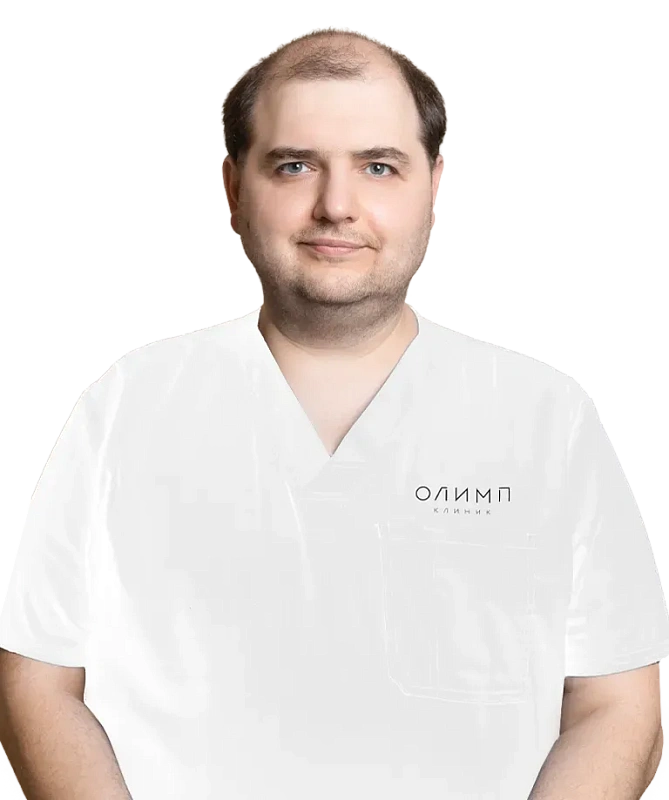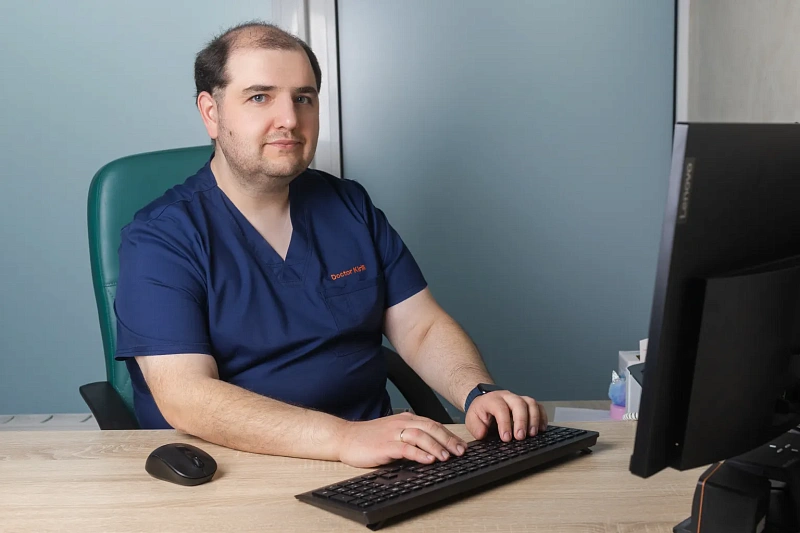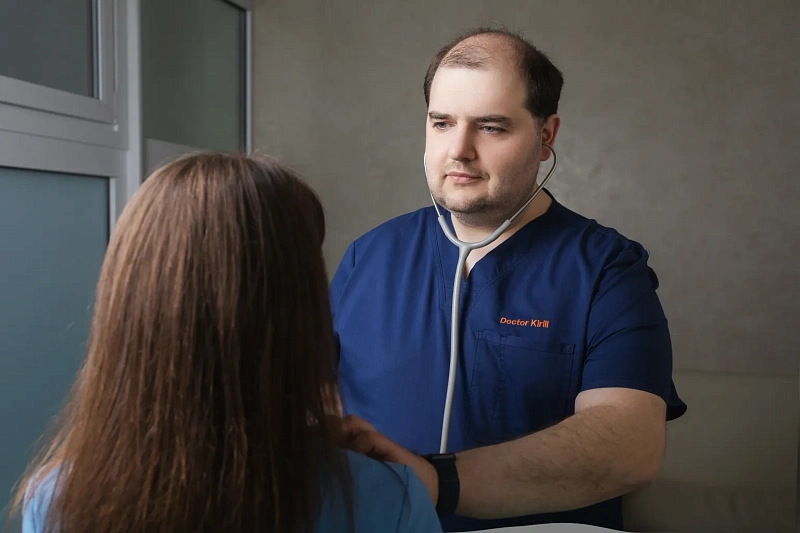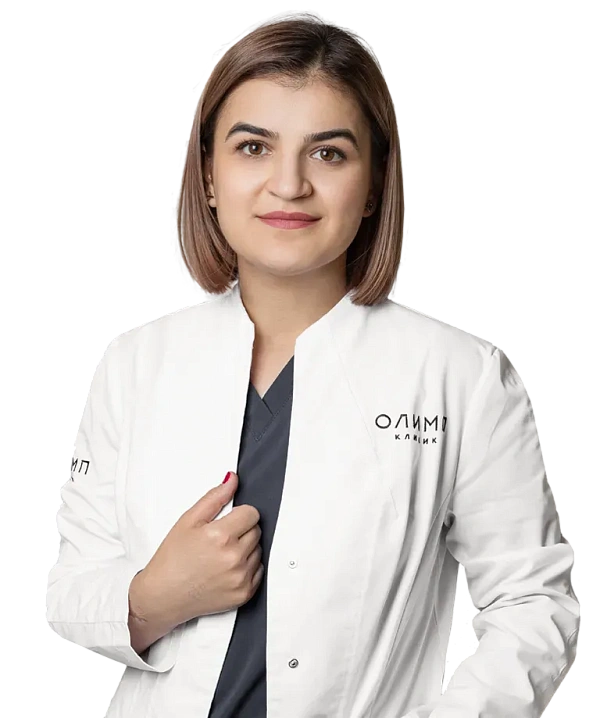Serdobintsev Kirill Valentinovich
Allergist-immunologist, pediatrician.

"The more difficult the task, the more interesting it is to solve it."
I have been in the profession for more than 14 years
Kirill Valentinovich sees patients of all ages. The key areas of his work are the diagnosis and treatment of allergic diseases such as allergic rhinitis, bronchial asthma and atopic dermatitis. He is also a specialist in the treatment of urticaria and angioedema.

"In my work, I adhere to the principles of evidence-based medicine based on scientific data, fight myths and prescribe only the necessary examinations and medications"
The doctor conducts allergen-specific immunotherapy, performs spirometry with pharmacological samples (FVD). An important part of his practice is vaccination, including the preparation of individual schedules and special attention to patients with chronic diseases.

Education and qualifications
2009
Basic education in the specialty “Pediatrics”
Russian National Research Medical University named after N.I. Pirogov
2010
Internship in the specialty “Pediatrics”
Filatov Children's Hospital, Moscow
2012
Residency in the specialty “Allergology and Immunology”
Russian National Research Medical University named after N.I. Pirogov
2015
Courses in the Pediatrics program
Russian National Research Medical University named after N.I. Pirogov
2015
Courses in the program “Allergology and immunology”
Russian National Research Medical University named after N.I. Pirogov
2020
Courses in the Pediatrics program
Russian National Research Medical University named after N.I. Pirogov
Frequently Asked Questions
How is pollinosis diagnosed?
To make a diagnosis, an allergist:
Listens to the patient's complaints, studies the medical history, seasonality of manifestations, and food intolerance. Chronic, past illnesses, parental history, and correlation with the time of year are important. It is important to exclude infections.
Conducts an examination of the patient.
Prescribes instrumental examinations — rhinoscopy, endoscopy, spirometry or CT if infectious causes of these symptoms are suspected or if a disease of the ENT organs is suspected.
He directs to do laboratory blood tests, skin tests. It is carried out only when there are no symptoms of the disease, usually in autumn and winter. The level of eosinophils in the blood is assessed, specific immunoglobulins E to suspected allergens are determined.
Identifies the source of the allergy.
Doctor: Serdobintsev Kirill Valentinovich
Listens to the patient's complaints, studies the medical history, seasonality of manifestations, and food intolerance. Chronic, past illnesses, parental history, and correlation with the time of year are important. It is important to exclude infections.
Conducts an examination of the patient.
Prescribes instrumental examinations — rhinoscopy, endoscopy, spirometry or CT if infectious causes of these symptoms are suspected or if a disease of the ENT organs is suspected.
He directs to do laboratory blood tests, skin tests. It is carried out only when there are no symptoms of the disease, usually in autumn and winter. The level of eosinophils in the blood is assessed, specific immunoglobulins E to suspected allergens are determined.
Identifies the source of the allergy.
Doctor: Serdobintsev Kirill Valentinovich
Didn't find an answer to your question?
You can describe your problem in detail and ask a question to the doctor. He will answer you and help you find a solution
Specialists in this department
Find a Specialist
Allergology and Immunology
Learn more
Experience: 15 лет
Serdobintsev Kirill Valentinovich
Allergist-immunologist, pediatrician.

